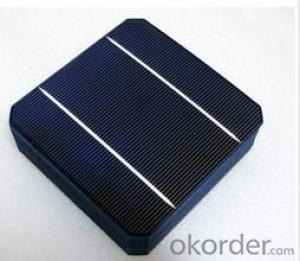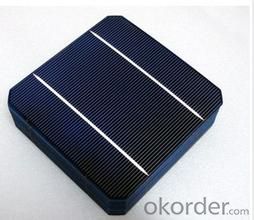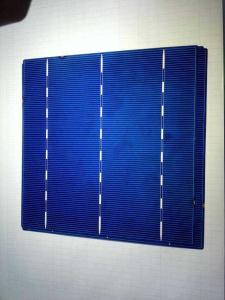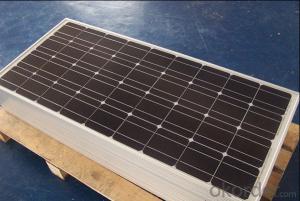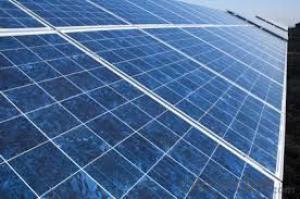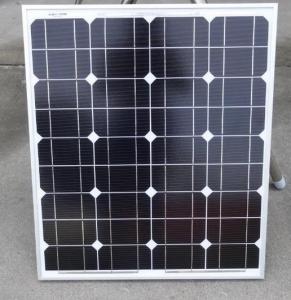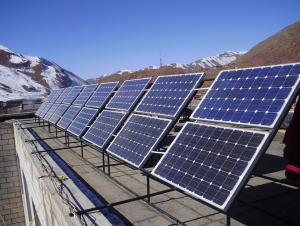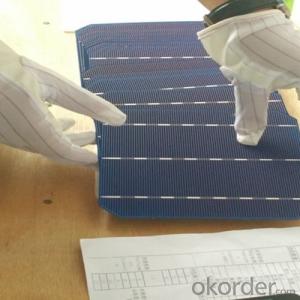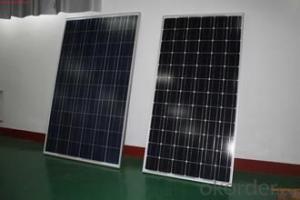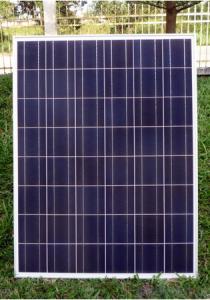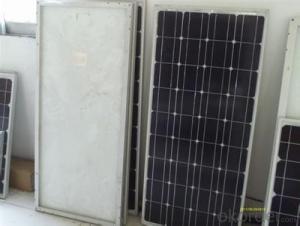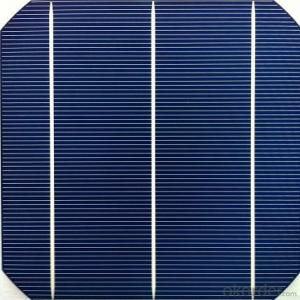Roof Shingle Solar Cells - Hot Sale TUV CE UL MCS CEC Monocrystalline Silicon Solar Cells Made in China
- Loading Port:
- China Main Port
- Payment Terms:
- TT OR LC
- Min Order Qty:
- -
- Supply Capability:
- -
OKorder Service Pledge
Quality Product, Order Online Tracking, Timely Delivery
OKorder Financial Service
Credit Rating, Credit Services, Credit Purchasing
You Might Also Like
Quick Details
| Place of Origin: | Model Number: | ||||
| Material: | Size: | Number of Cells: | |||
| Max. Power: | TYPE: |
Packaging & Delivery
| Packaging Detail: | COMMON PACKING |
| Delivery Detail: | 15 DAYS |
Specifications
solar panel Mono crystalline 250w
1.100% A grade cell
2. Positive Tolerance
3. Super quality competitve price
HOT SALE TUV CE UL MCS CEC solar panel Mono crystalline 250w made in China pecification
Mechanical Characteristics
| Solar Cell | Mono-crystalline silicon 156 × 156 mm (6 inches) |
| No. of Cells | 60 (6 × 10) |
| Dimensions | 1640 × 992 × 40mm |
| Weight | 20.0 kgs |
| Front | Glass 4.0 mm tempered glass |
| Frame | Anodized aluminium alloy |
| Junction Box | IP67 rated (3 bypass diodes) |
| Output Cables | TUV (2Pfg1169:2007), UL 4703, UL444.0 mm2, symmetrical lengths (-) 900mm and (+) 900 mm |
| Connectors | MC4 connectable |
| Mechanical load test | 5400Pa |
| Resistance | 277g steel ball falls down from 1m height and 60m/s wind |
- Q: Can solar cells be used on curved surfaces?
- Yes, solar cells can be used on curved surfaces. In fact, advancements in technology have made it possible to design flexible solar cells that can be curved to fit various shapes and structures, allowing for more versatile and efficient use of solar energy.
- Q: Can solar cells be used in smart grid systems?
- Yes, solar cells can definitely be used in smart grid systems. Solar cells can generate electricity from sunlight, which can then be integrated into the smart grid to efficiently distribute and manage renewable energy. This allows for the seamless integration of solar power into the grid, reducing reliance on conventional energy sources and promoting a more sustainable and reliable energy system.
- Q: Can solar cells be used in remote sensing devices?
- Yes, solar cells can be used in remote sensing devices. Solar cells are capable of converting sunlight into electricity, providing a sustainable and reliable power source for remote sensing devices. This allows them to operate independently and for extended periods of time, making solar cells an ideal energy solution for remote sensing applications.
- Q: How do solar cells perform in dusty environments?
- Solar cells performance in dusty environments can be significantly affected. The accumulation of dust on the surface of the cells reduces the amount of sunlight reaching the cells, leading to a decrease in their efficiency. Regular cleaning and maintenance are required to ensure optimal performance in such conditions.
- Q: Can solar cells be used in data centers?
- Yes, solar cells can be used in data centers. They can help offset the energy consumption of the data center by generating clean and renewable electricity. However, their effectiveness may depend on factors such as the size of the data center, available space for solar panel installation, and the amount of sunlight available at the location.
- Q: Can solar cells be used in industrial applications?
- Yes, solar cells can be used in industrial applications. They are increasingly being integrated into industrial processes to generate clean and renewable energy for powering machinery, equipment, and facilities. Solar cells are utilized in various industrial sectors such as manufacturing, agriculture, mining, and logistics, contributing to reduced carbon emissions and operational costs.
- Q: Can solar cells be used in public transportation systems?
- Yes, solar cells can be used in public transportation systems. They can be installed on the roofs of buses, trains, and trams to generate electricity from sunlight, which can be used to power various systems such as lighting, air conditioning, and onboard electronics. This helps reduce reliance on fossil fuels and lowers the carbon footprint of public transportation. Additionally, solar cells can also be integrated into bus shelters and charging stations to provide clean energy for electric buses and other vehicles.
- Q: Can solar cells be used in street lighting?
- Yes, solar cells can be used in street lighting. Solar-powered street lights use photovoltaic panels to convert sunlight into electricity, which is stored in batteries. This stored energy is then used to power the street lights during the night, making them independent from the electrical grid and more environmentally friendly.
- Q: Can solar cells be used in power plants?
- Yes, solar cells can be used in power plants. Solar power plants, also known as solar farms or solar parks, utilize large arrays of solar panels that contain solar cells to convert sunlight into electricity. These power plants can generate a significant amount of renewable energy and contribute to reducing greenhouse gas emissions.
- Q: What is the impact of snow accumulation on solar cell performance?
- Snow accumulation on solar cells can have a negative impact on their performance. The presence of snow on the surface of solar panels can block sunlight from reaching the cells, reducing their ability to generate electricity. Additionally, snow can create a barrier that prevents proper heat dissipation, which can lead to overheating and potential damage to the cells. Regular snow removal or tilt angles that facilitate snow shedding can help mitigate these effects and ensure optimal solar cell performance.
Send your message to us
Roof Shingle Solar Cells - Hot Sale TUV CE UL MCS CEC Monocrystalline Silicon Solar Cells Made in China
- Loading Port:
- China Main Port
- Payment Terms:
- TT OR LC
- Min Order Qty:
- -
- Supply Capability:
- -
OKorder Service Pledge
Quality Product, Order Online Tracking, Timely Delivery
OKorder Financial Service
Credit Rating, Credit Services, Credit Purchasing
Similar products
Hot products
Hot Searches
Related keywords
